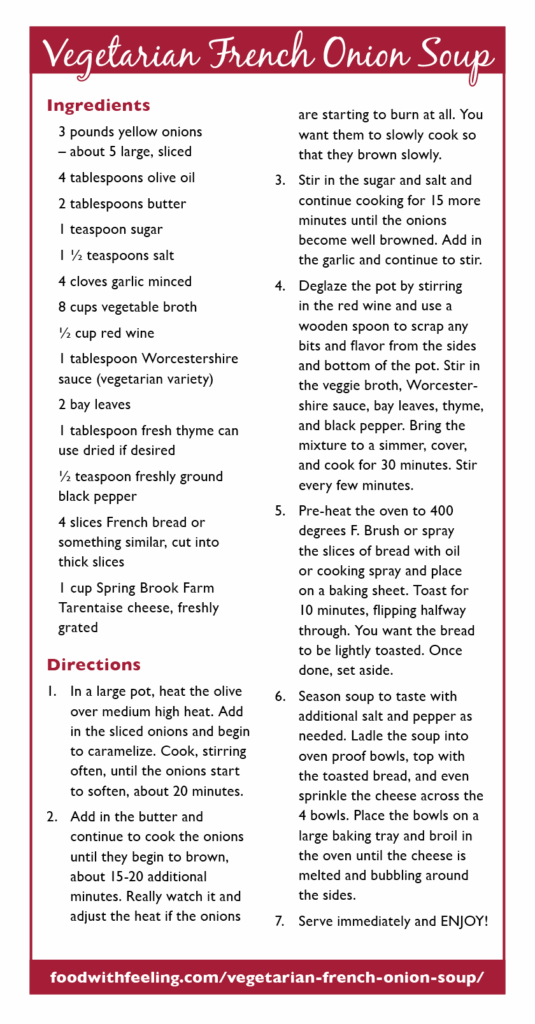Spring Brook Farm
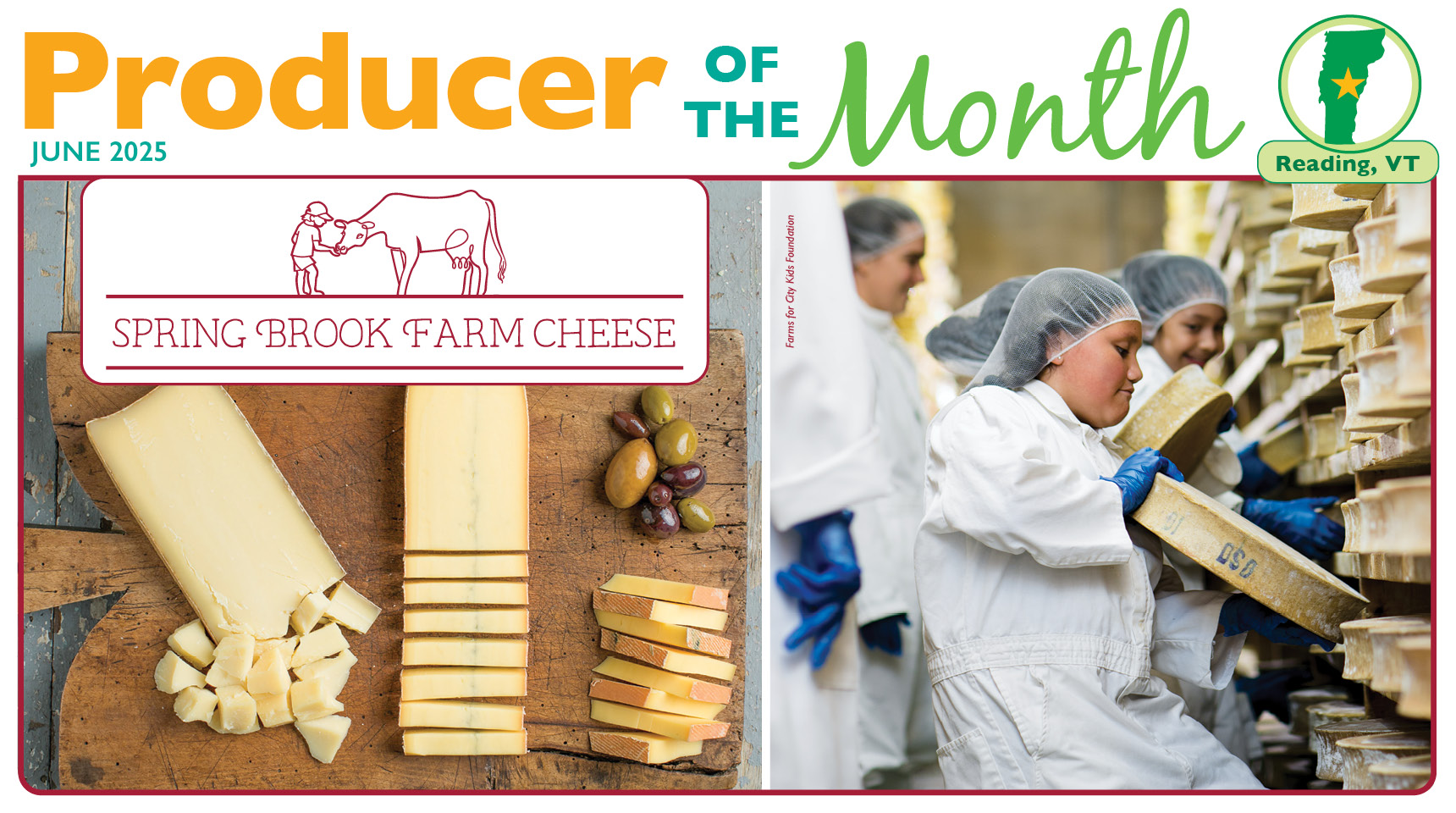
I drove into Spring Brook Farm on the perfect Vermont spring morning to chat with Lisa, one of the cheesemakers at this gorgeous farm. The dandelions had popped up seemingly overnight, blanketing the meadows nestled between the Vermont hills. It was that special moment when these little golden orbs are allowed to add to the wild of the fields, before the farmers and landscapers have had the time to think of them as weeds. The Jersey cows at Spring Brook Farm think of these beauties as food and pretty soon the beta carotene from the dandelions will be lending to the color and flavor of the farm’s summer cheeses.
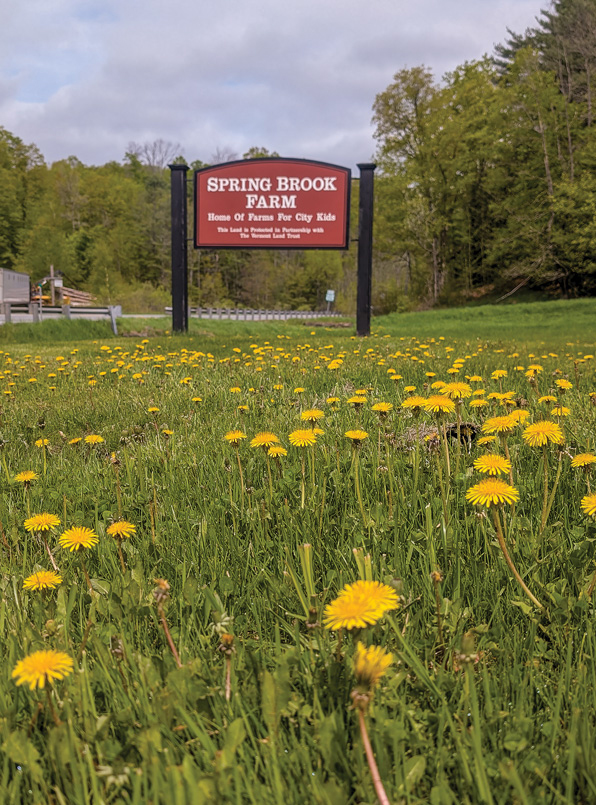
The cheeses at Spring Brook Farm are produced with the same methods all year long, using raw milk in the traditional French Alpine style, but since the cows feed on local flora we have the opportunity to experience the flavor profiles shift as the seasons shift. We are moving into the season of floral, citrus, and pineapple notes, which will transition to savory, oniony, and brothy when the weather gets colder and the cows are fed with hay instead of meadow grass. Each subtle change in feed and, therefore, chemistry produces a flavor profile in the cheese that is unique and quintessentially “Vermont.” If you’ve had Spring Brook Farm cheese before, we recommend trying it again… and again and again for this reason. You will be seeing and tasting the changing seasons of this community.
Spring Brook Farm Cheese is the definition of a hyper-local small business, splitting cheese making and business duties between just six people (Lisa, Tom, Eric, Derek, Austin, and Rachel) and using only milk from the 40 Jersey cows living on the farm. This is extremely impressive considering the facility produces around 92,000 pounds of cheese per year! Imagine six people lifting and turning and washing and packing almost a hundred thousand pounds several times with their own hands. Lisa says the team has no need to go to the gym after work.

Operating in this way contributes to the economic stability of the farm by cutting down on the labor and transportation costs cheesemakers might run into by outsourcing any part of their process. It’s win-win as the cheesemakers are able to maintain the beauty of the flavors of the cheese while also creating systems on the farm that optimize for logistical efficiency. Their on-site milk transportation system is an excellent example of the effective utilization of available resources. The milk is transferred from the milking area to the cheesemaking facility via gravity through long pipes, thanks to the farm’s positioning on a hillside (something you will experience if you decide to visit the Cheese House—and while it’s not exactly offroading to get there, we recommend touring on a dry day!). This system cuts down on energy demands and also cuts down on the aeration of the milk, which preserves as much of the milk’s original character as possible.
Local production allows us to experience the beauty of our own terroir, but it also offers a solution to issues of international and legal impact. Raw milk is a notoriously difficult style of cheese to import due to food safety regulations. Though it is possible to import raw milk cheeses to the United States, the cheese needs to have been aged for at least 60 days, which means a complete lack of availability of younger cheeses in this style in the U.S. True Morbier was actually completely banned at one point! Enter: young, locally made, Alpine-style cheeses like Spring Brook Farm’s Reading and Ashbrook.
Cheese Makers like Spring Brook Farm fill this gap in the American market as best they can by strictly adhering to French Alpine-style methods, honoring the tradition of these cheeses. This doesn’t stop at using French processes—every piece of production equipment used by the farm came from France and was assembled by a French technician. The farm made this investment years ago because, as members of a tight-knit international community of cheesemakers, they see it as their duty to preserve the heritage of these cheeses, especially in situations where that heritage might be in jeopardy.
The impact of Spring Brook’s cheeses on our community and culture is clear, but the vision of this business did not start with the product, if you can believe it. In 1994, before there was any cheesemaking on the farm, Spring Brook became the host of the Farms for City Kids Foundation. Farms for City Kids is an initiative offering children the opportunity to stay at the farm for five days to learn the processes of local food production. The cheese house was conceived to support this initiative and to offer the visiting kids more enrichment. If you stop by to check out the farm you may notice groups of school kids learning all about our local food economy, caring for cows, and helping to make cheese! It’s heartwarming to see and solidifies this farm as an incredible steward of cheese tradition on all levels: local, regional, and international.
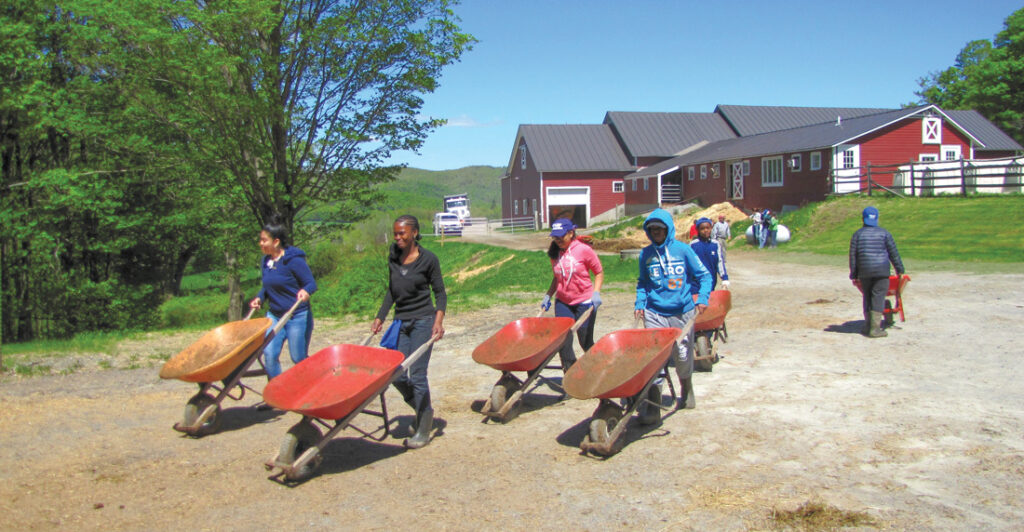
My visit with the cheesemakers at Spring Brook Farm inspired surprisingly profound reflections. I was struck by the variety of experiences that are possible given such a strict set of parameters. Alpine methods. Raw milk. It’s so “basic” and yet there are so many possible variations, so many opportunities to experience something uniquely beautiful. You might come to love bright, floral summer cheese, but you can never experience the same bright, floral summer cheese twice. Isn’t this very similar to the human experience? We are all just big wheels of cheese—unique, aging, and changing all the time. It’s a great reminder to take a hunk out of life and enjoy the present moment!
There are currently three cheeses being produced by Spring Brook Farm that we carry here at the Co-op: Tarentaise, Reading, and Ashbrook.
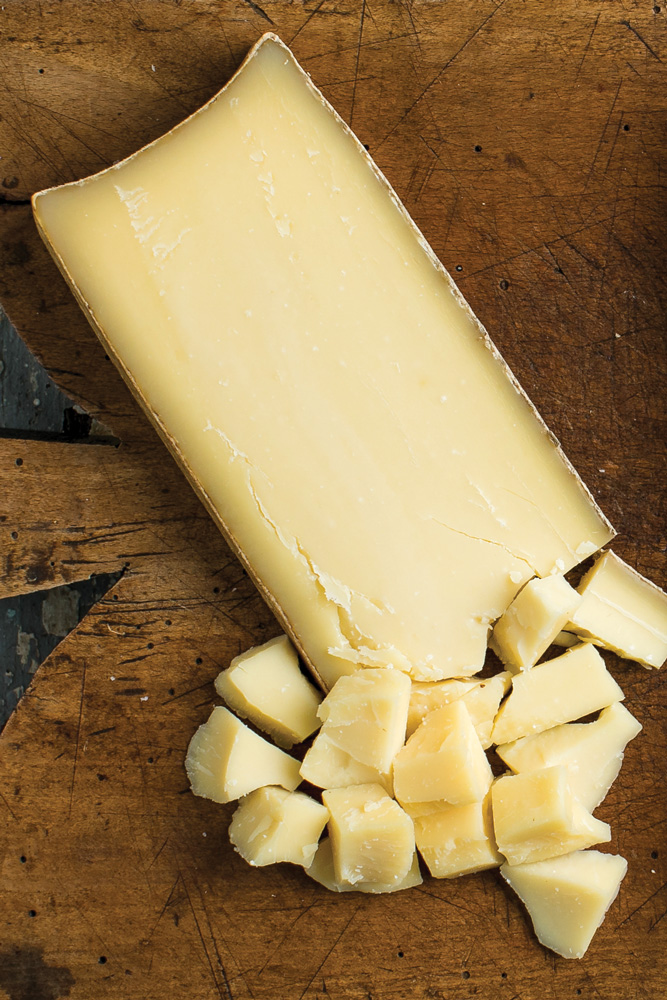
Tarentaise is made using fresh raw milk. It has a natural washed rind, is semi-firm in texture, and aged for a minimum of nine months. This cheese has the most complex flavor profile of the three, due to the longer aging process. Tarentaise is Tom’s favorite and Lisa says it’s great in French onion soup and mac & cheese.
Reading is a wash-rind Raclette-style cheese, aged an average of three months. It offers a unique creamy texture balanced by nutty, grassy undertones. It matures into a semi-soft cheese ideally suited to melting, but still offers a complex flavor profile that allows it to stand alone. This one is an American Cheese Society first-place winner and Lisa says it is also the most versatile or “user friendly.”
Ashbrook is an ode to French Morbier and exhibits a distinctive layer of vegetal ash running through the center of the paste. It is a semi-soft washed rind cheese that is aged for approximately three months. Ashbrook has savory aromas on the rind that give way to mushroomy, sour cream-like flavors. This one is Lisa’s favorite. The melt-in-your-mouth texture is very appealing.
Written by Sarah Galgano
About Producer of The Month

Shop Online

On Sale Now!

